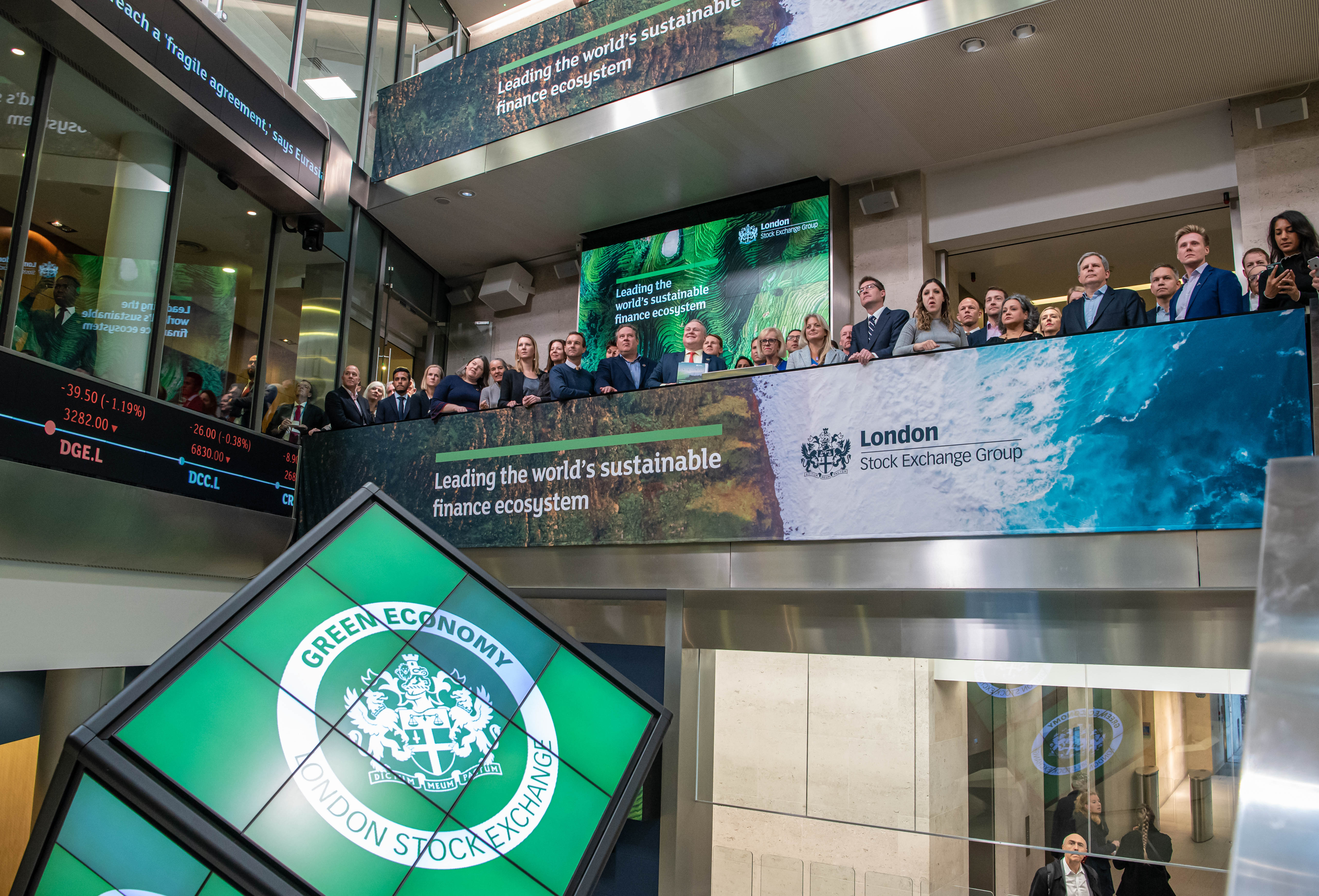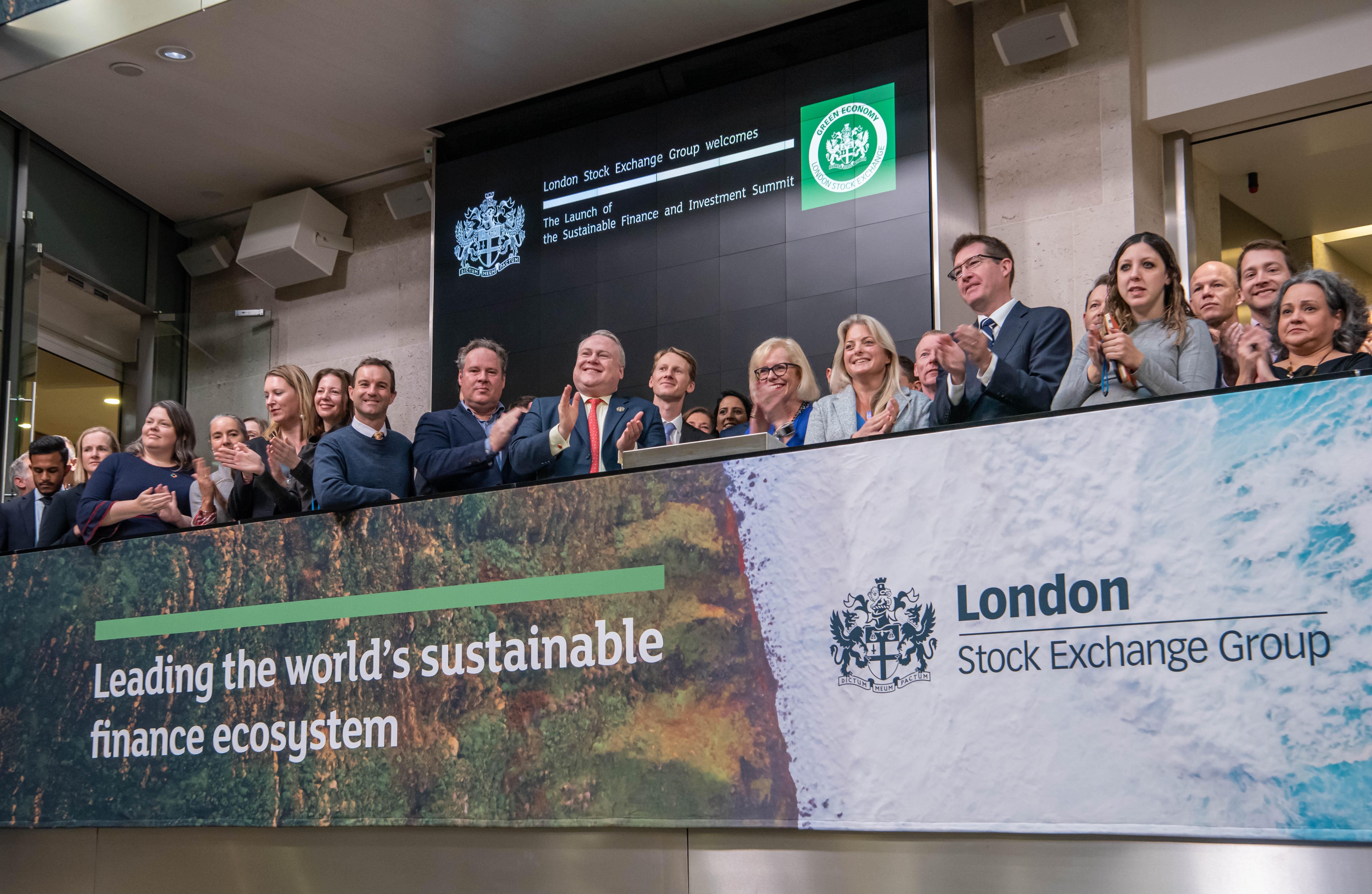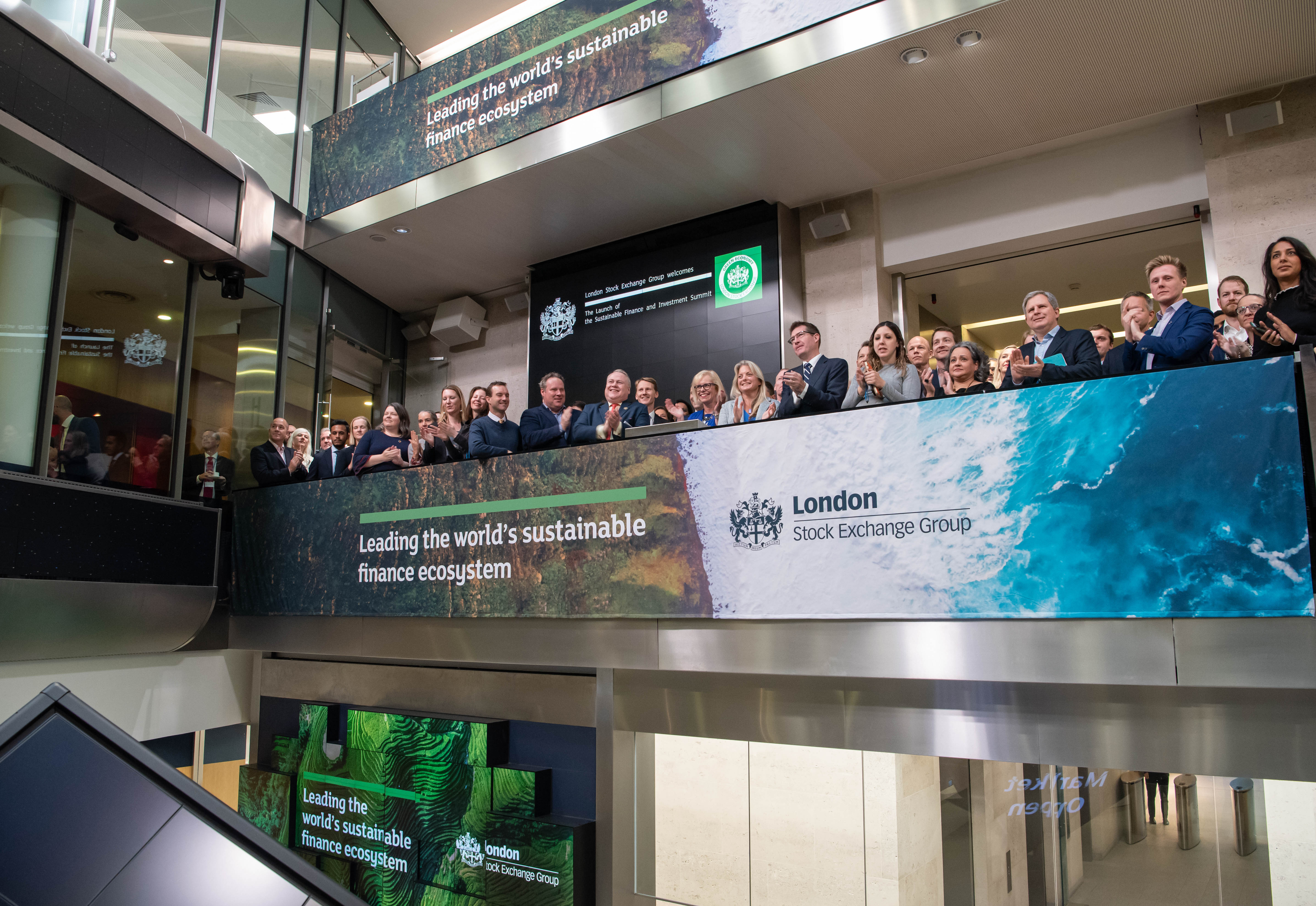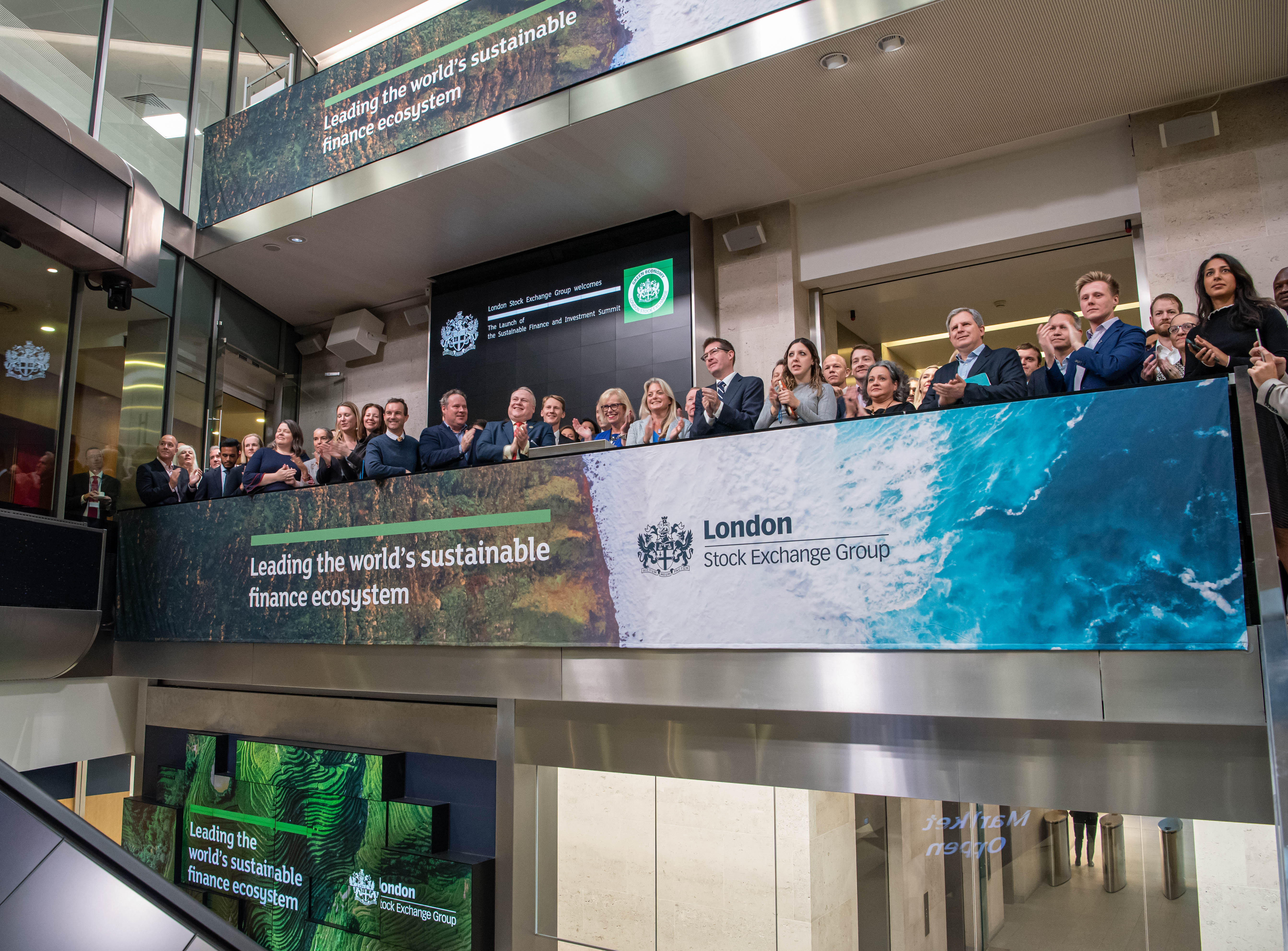Sustainable finance at London Stock Exchange
The transition to a low-carbon or “net zero” economy is set to become one of the defining issues of the twenty-first century. The scientific community has detailed the risks, and many policymakers and regulators are now taking action.
In the UK, the FCA recently set out proposals designed to improve the climate change disclosures for companies and other issuers, building on the work of the industry-led Task Force on Climate-related Financial Disclosures (TCFD) and the UK Government’s streamlined Energy and Carbon Reporting Framework. The Governor of the Bank of England, Mark Carney, said in a speech in October 2019 that “firms that align their business models to the transition to a net zero world will be rewarded handsomely. Those that fail to adapt will cease to exist.” Sustainable business models and investment are now both an environmental and commercial imperative.
At the same time, an increasing number of companies and institutional investors recognise the risks posed by climate change with the rationale for strong action clearer than ever. We know that the green economy represents 6 per cent. of the market cap of global listed companies, approximately $4 trillion. With an estimated $30 trillion in assets under management now implementing sustainable investment strategies, investors around the globe are increasingly focused on sustainability. This figure is set to increase, with investment in Environmental, Social and Governance (ESG) based strategies growing by 20% annually. Sitting at the heart of the world’s financial markets, London Stock Exchange Group (LSEG) is well positioned to support the global transition to a sustainable low-carbon economy.
London Stock Exchange launched a dedicated Green Bonds Segment in 2015, a pioneering move and the first such segment offered by a global exchange. Today London is home to a range of green, social and sustainability bonds, which have together raised over £33 billion for corporates, institutions, governments and supranationals. Building on these platforms, London Stock Exchange recently launched two further initiatives to support the transition to a green economy, the Sustainable Bond Market and a Green Economy Mark.
The Green Economy Mark for equities and the Sustainable Bond Market (SBM), are designed to support the transition to a sustainable low-carbon economy. Together they support issuers, companies or investment funds, in raising sustainable capital and demonstrating their credentials.
London Stock Exchange’s Green Economy Mark recognises companies and investment funds listed on the Main Market and AIM that derive 50% or more of their total annual revenues from products and services that contribute to the global green economy, so called “Green Revenues”. The 50% threshold is important because it captures not just the ‘pure play’ issuers that immediately come to mind, in fields like renewable energy and waste management, but a wide range of issuers contributing to environmental solutions.
The 74 equities that have received the mark include businesses across sectors, from manufacturing to transport, agriculture, chemicals and financials. By raising their visibility and profile we aim to drive awareness of the breadth of the green economy and identify issuers that may not otherwise have considered to be active in this space. The Green Revenues data comes from FTSE Russell and is being used as a factor by increasing numbers of investors to increase their investments in green industry companies as part of an approach to mitigate investment risks from climate change.
Our second initiative, the SBM builds upon the success of our Green Bond Segment. To the existing Green Bond Segment, we’ve added dedicated segments for social and sustainability bonds. These new segments further enable investors to distinguish between different types of sustainable bonds, based on independently verified frameworks and use of proceeds. There is also a segment for ‘issuer-level classified’ sustainable bonds raising the profile of standard bonds from green issuers. For companies in the Issuer-Level segment, Green Revenues account for 90% or more of the entire business, so any capital that they raise, supporting any part of their business, is considered green.
But, of course, we can do even more, especially if we want to work towards a more sustainable world. The Global Commission on the Economy and Climate estimated that US$90 trillion of investment is needed by 2030 to achieve the Paris agreement. At LSEG, it is imperative that we provide support and act as an enabler to support both developed and emerging economies to navigate this challenge. Our Sustainable Bond Market is currently home to over 200 bonds, many that have been pioneering world firsts, in terms of currency, geography or structure. For instance, SBM is home to the first certified green bonds out of China, India, the Middle East and first sovereign green bonds from Asia Pacific and the Americas. Bonds on SMB represent issuers from 18 countries and have raised over £33 billion in 14 currencies.
Through our experience with the Green Bond Segment we’ve seen that there is strong investor appetite for a similar type of instrument to support companies to transition their assets and business models. This is equally true for those operating in high carbon emitting industries. We recognised that to establish the principles and classification criteria for transition bonds will be complex. As part of our aim to launch a Transition Bond Segment London Stock Exchange is consulting with issuers, investors, advisors and the wider market.
Both the Green Economy Mark and the Sustainable Bond Market build on expertise from LSEG’s FTSE Russell business. For almost 20 years, since the launch of the FTSE4Good Indexes, FTSE Russell has helped promote sustainable investment, developing indexes, data and analytics tools. This sustainability expertise and data is now being utilised to help London Stock Exchange issuers to consider climate change, communicate more effectively with investors, and raise the necessary capital address to support the transition to a sustainable low carbon economy.
Financial markets infrastructure providers have a crucial role to play in the transition to a greener, more sustainable economy. These initiatives underline London Stock Exchange Group’s commitment to playing our part, working with all market participants to develop practical solutions to support issuers and investors across the globe.



